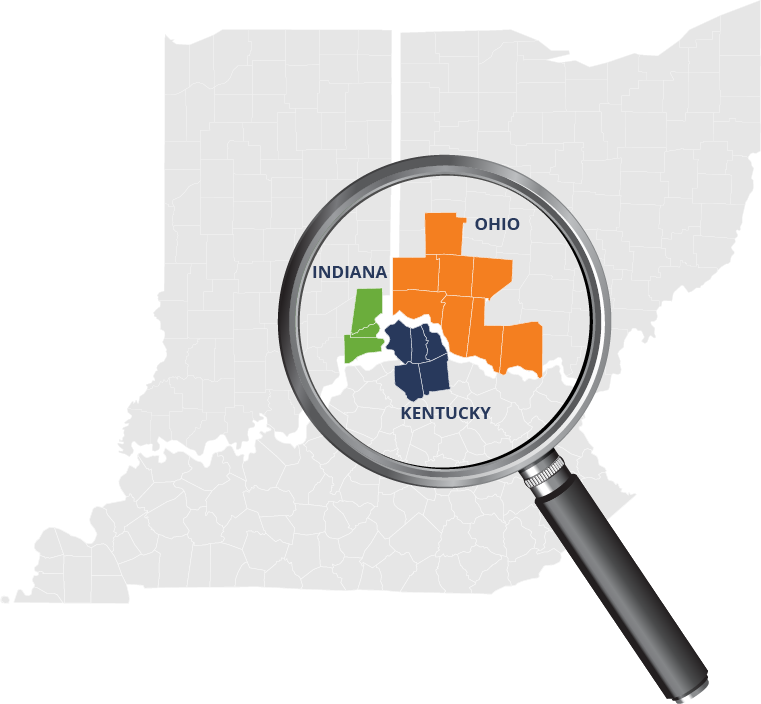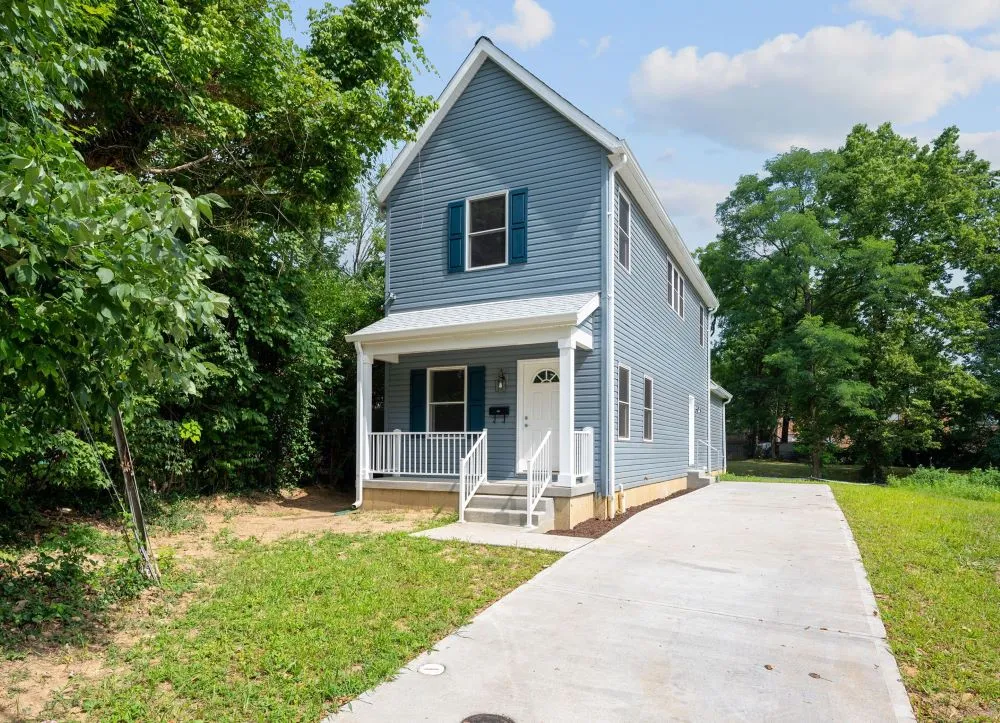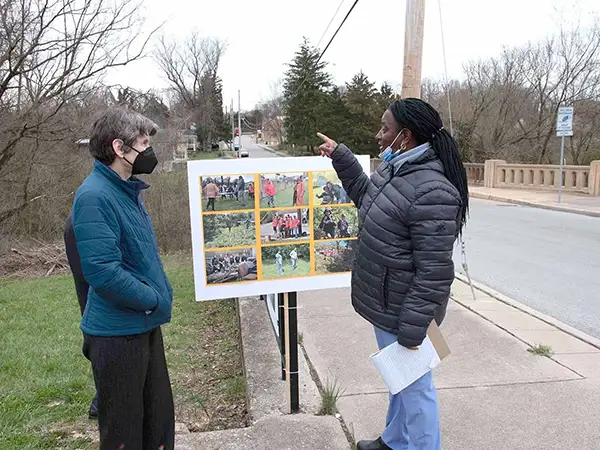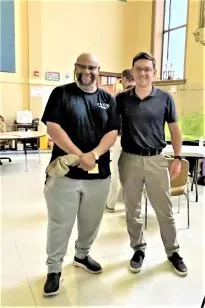OUR ECONOMIC IMPACT
OUR REACH
WIN serves individuals and families in the Greater Cincinnati Region. The specific geographic regions served by each program are listed below:
Housing Development: Targeted City Neighborhoods in Hamilton County (currently Northside, College Hill and South Cumminsville)
Financial Capability: Southwest Ohio (Adams, Brown, Butler, Clinton, Clermont, Hamilton, Montgomery, and Warren Counties), Northern Kentucky (Boone, Campbell, and Kenton Counties), and Eastern Indiana (Dearborn, Ohio, and Switzerland Counties).
Community Building: Targeted City Neighborhoods, with a strong focus in South Cumminsville and surrounding neighborhoods.

THE DIFFERENCE TO FAMILIES
Research throughout the United States and in our own community demonstrates the measurable improvements in health, education, community safety, stability and wealth generation of increased homeownership.
Children of homeowners
Communities with more homeowners
*These findings hold true even when other factors are taken into account
From a Side Lot to a Children’s Community Garden
When Pamela Woods first became active with the Beekman Corridor Coalition, she was quiet and did not speak in public. Over time, she became the Chair for the Beekman Corridor Coalition’s Housing Committee and a member of WIN’s Board. As the Housing Committee Chair, Pamela worked with other residents who wanted to get vacant blighted lots into the hands of people living in the community who would invest time and money into improving and maintaining them. With WIN’s support, they successfully negotiated an agreement with the Landbank to waive their standard $500-$1,000 fee for vacant lots in the Beekman Corridor for homeowners and long-time residents. Since the launch of the Beekman Corridor “Dollar Lot” pilot program, around 30 vacant lots have been acquired by residents for $1, plus title and transfer fees. Many of them are now working on projects to install green infrastructure to manage stormwater, plant mini-orchards and native species to support wildlife and attract pollinators and create space to spend time with family and neighbors.
Pamela knew exactly which lot she was interested in taking control of—a vacant lot near her home had been a problem for years, garnering dozens of complaints and violations for overgrown weeds, litter, dumping, junk cars and more. Citations and fines were added to property tax bill, bringing the delinquency to nearly $11,000 before the land went into forfeiture and ended up in the City’s abandoned property program. The sloping corner lot, encircled with trees that drops down to the wooded West Fork Mill Creek would be the perfect place to create a safe, educational, green community space for kids and families in her neighborhood, somewhere they could learn about gardening, healthy food, and nature. “I took cooking classes in Home-Ec when I was in high school, but they never talked about where the food came from or how to grow it. I just thought vegetables came from the Kroger.”
Pamela Woods and her family are a perfect example of the how community ownership of these properties can bring positive change and once they acquired the lot, things changed for the better. The grass was cut and free from litter. They devised attractive but effective ways to “defend” their property from illegal dumpers and junk cars, using decorative stones and planters full of bright flowers. But it was clear it would take a lot of work and planning to complete the transformation at the corner of Herron and Powers St. Like many of vacant lots, this property has issues with compacted clay soil, likely lead contamination, steep slopes, and stormwater run-off issues.
Fortunately, Environmental Justice funding from the US EPA is supporting WIN’s efforts to develop partnerships and resources to help residents like Pamela. WIN is looking at ways to incorporate green infrastructure to reduce stormwater run-off, pollution, and blight. This includes trees, gardens, and rainwater collection. With WIN’s support, Pamela applied for and received funding from Keep Cincinnati Beautiful through the “Safe & Clean” and “Spaces to Places” programs. Her project will receive funding, professional landscape design services, technical support, and additional volunteers to build her garden.
To get the next phase of her project moving, Pamela knocked on neighbors’ doors to invite them and their families to an event to get their ideas and input about what they would like the Children’s Garden to have, skills she learned and developed through her work with the Beekman Corridor Coalition. Landscape design firm Human Nature incorporated this feedback into an incredible design concept/site plan that incorporates community space, nature education, native plants, and trees, raised vegetable beds, and pollinator gardens. The design also incorporates green infrastructure elements to slow and filter stormwater run-off as it moves down slope to the West Fork Creek.
WIN has connected Pamela and her neighbors to volunteer groups to help remove invasive species and clean up the vestiges of illegal dumping that had accumulated along the creek. We’ve also helped her document the support of her neighbors and the Community Council to get City approval for necessary zoning and permit issues. It’s taken a lot of time and hard work, and there’s more ahead. But Pamela believes it’s worth it, if it means families and children in this neighborhood have a safe, green place to garden and enjoy the beauty of nature. WIN wholeheartedly agrees, and we’re extremely proud to work alongside neighborhood leaders like Pamela.
WIN Builds 20th Home in College Hill
 A blighted, vacant lot at 5917 Piqua Avenue in College Hill is now the site of a charming 3-bedroom, 3-bath home. Working In Neighborhoods (WIN) put the house on the market in October. It’s the twentieth home WIN has built or rehabbed in College Hill as part of its efforts to revitalize the area around Cedar Avenue.
A blighted, vacant lot at 5917 Piqua Avenue in College Hill is now the site of a charming 3-bedroom, 3-bath home. Working In Neighborhoods (WIN) put the house on the market in October. It’s the twentieth home WIN has built or rehabbed in College Hill as part of its efforts to revitalize the area around Cedar Avenue.
The home’s modular construction and LEED certification reduce operating costs, cut energy usage, and lower carbon emissions. It will be sold to a first-time homeowner whose income is at or below 80% of the area median income (e.g., a family of four earning $80,900 or below would qualify). “We will soon see a family living in this house, which is very exciting to us,” said WIN executive director Sr. Barbara Busch.
Partners on the project include neighbors in College Hill, the City of Cincinnati, HomeBase, the Greater Cincinnati Foundation, The Port Authority, and the Ed Wells College Hill Housing Fund. Wells, who passed away in 2021, was a former College Hill resident who, with his family, established a fund to promote building affordable housing in that community. “We are grateful to all of our partners who work with WIN to make homeownership possible for low- to moderate-income families,” said Busch. “Homeownership offers families financial stability and a way to create generational wealth.”
“WIN’s work not only transforms brick and mortar buildings, but also families’ futures, especially those families who are ready to work together to purchase their first homes.”
—Sister Barbara Busch
The Impact of Homebuyer’s Education
It took patience, but Tamisha Gibson got what she wanted a 3-bedroom house with an enclosed porch, a backyard, and a nice-sized kitchen.
“I like the rain, and now I can sit on my porch and listen to it,” said Gibson. She had wanted a home for a long time but had put that goal “on the back burner” while she lived in Cincinnati Metropolitan Housing Authority (CMHA) housing. There, they introduced her to WIN’s homeownership program.
In September 2022, she began working with WIN’s HUD-certified housing counselor, Dennis Kinne. Then she took WIN’s 9-hour homebuyer class. Gibson said, “I didn’t know much about home buying. I didn’t know that you got an inspection or picked an agent. Dennis taught me all about that.”
Kinne added, “Tamisha succeeded because she did what she needed to do to be ready to purchase. She also received down payment assistance through our financial partner Eagle Savings Bank. Plus, she had the good fortune to have a family connection to an available home.”
Gibson now lives next door to her parents in Mt. Airy. She is grateful for the help she received from Eagle and WIN. “If I hadn’t received down payment assistance it would have taken me at least another year to be able to purchase,” said Gibson. “ My nephew wants to own a home and I told him to go to WIN because they have great people there and he’ll learn how to save money and set goals.”
Community-Focused Housing Plan for Beekman Corridor
Over the last year, Working In Neighborhoods (WIN), residents and community council leaders from neighborhoods along the Beekman Street Corridor, city officials, banks, and the Port have been working hard. The group, known as the Beekman Corridor Coalition Housing Steering Committee, is partnering with Urban Fast Forward consultants on developing a community-focused housing plan to stabilize and preserve existing housing stock and identify new housing opportunities.
For decades, corridor residents have experienced the same pattern of decline that affects so many urban, majority African-American, working-class neighborhoods. Nearly 70% of owner-occupied homes in the corridor were built prior to 1940, and the average home value is just over one-third of Hamilton County’s median level. As a result, 23.7% of homes in the corridor are vacant, making attracting investment and new homeowners a challenge.
WIN’s Executive Director, S. Barbara Busch, said, “Many corridor residents lost their homes during the last recession, and a significant number of those homes remain empty. If we want to increase African American homeownership, we need to keep the homeowners we have.” This plan reflects the community’s vision for meeting the needs of existing residents, supporting legacy homeowners so that seniors can age in place, identifying new development sites, and attracting new investment.
Soon, students from the University of Cincinnati’s DAAP program will be collecting additional information in the corridor. These details will provide the coalition with data on what homeowners need and where it is most needed.
By the end of 2023, the coalition’s goal is to have a set direction and to be moving forward.
A thriving community is one that’s empowered to work together to address issues and tackle challenges to make lives richer and more productive.
The Challenge:
South Cumminsville was a neighborhood with a multitude of issues. Factory jobs had moved overseas, businesses were moving out, storefronts stood empty, and houses stood abandoned. Over time sidewalks began to crumble and crime started creeping into the community. When residents got the news from the Health Department that, along with the area being designated a food desert, life expectancy was also declining, they knew they needed to take action.
That’s when residents reached out to WIN. Working side by side with community members, WIN was able to provide South Cumminsville with the resources, training, and support they needed to stop the decline and start rebuilding their community.
WIN’s Efforts in South Cumminsville:
Impact of WIN Programs and Resident Efforts:
“WIN does a fantastic job of finding ways to coalesce people from neighborhoods with people and resources from the broader community to produce great outcomes in housing, community development and individual empowerment. WIN itself is a significant asset to this region and beyond.”
—Ed Diller, Senior Counsel – Taft Stettinius & Hollister LLP


